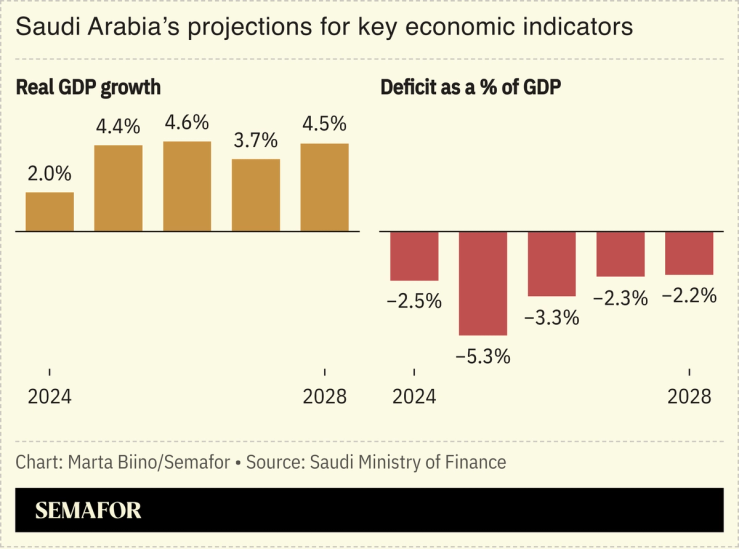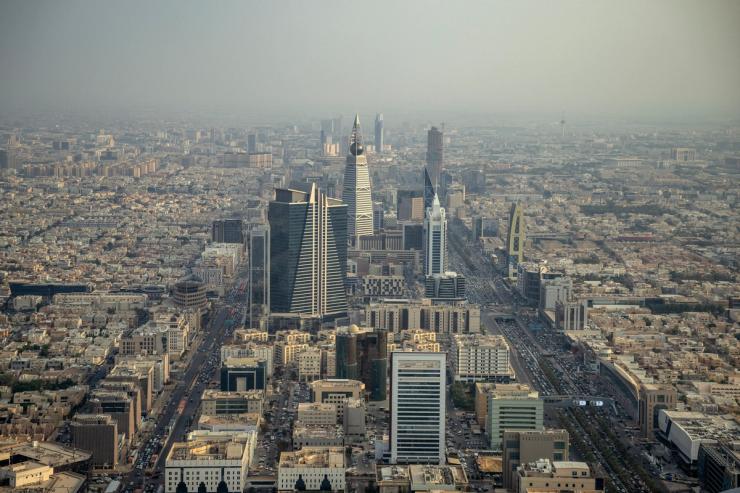Saudi Arabia expects wider budget deficits this year and in 2026 after lowering revenue projections and boosting spending. The finance ministry said this year’s shortfall will amount to 5.3% of GDP, more than double the estimate announced in December. The kingdom’s budget is closely watched by everyone from investors in Saudi markets to oil speculators for signs of the government’s outlook on crude prices to prospects for construction spending.

Saudi Arabia has posted a budget deficit every year of the past decade, except 2022 when oil prices spiked to more than $100 a barrel. The government’s low debt levels give it room to borrow to build non-oil industries, and there are signs the strategy is paying off: Tourism is growing quickly as the country opens up to foreigners, and non-oil exports have also jumped.
But some economists are skeptical that authorities will be able to narrow deficits, as the government’s latest forecast projects: the finance ministry had previously said spending was set to fall by 6.5% this year and now expects the decline to be about 2.8%, highlighting the challenges in reducing outlays amid lower oil prices.


